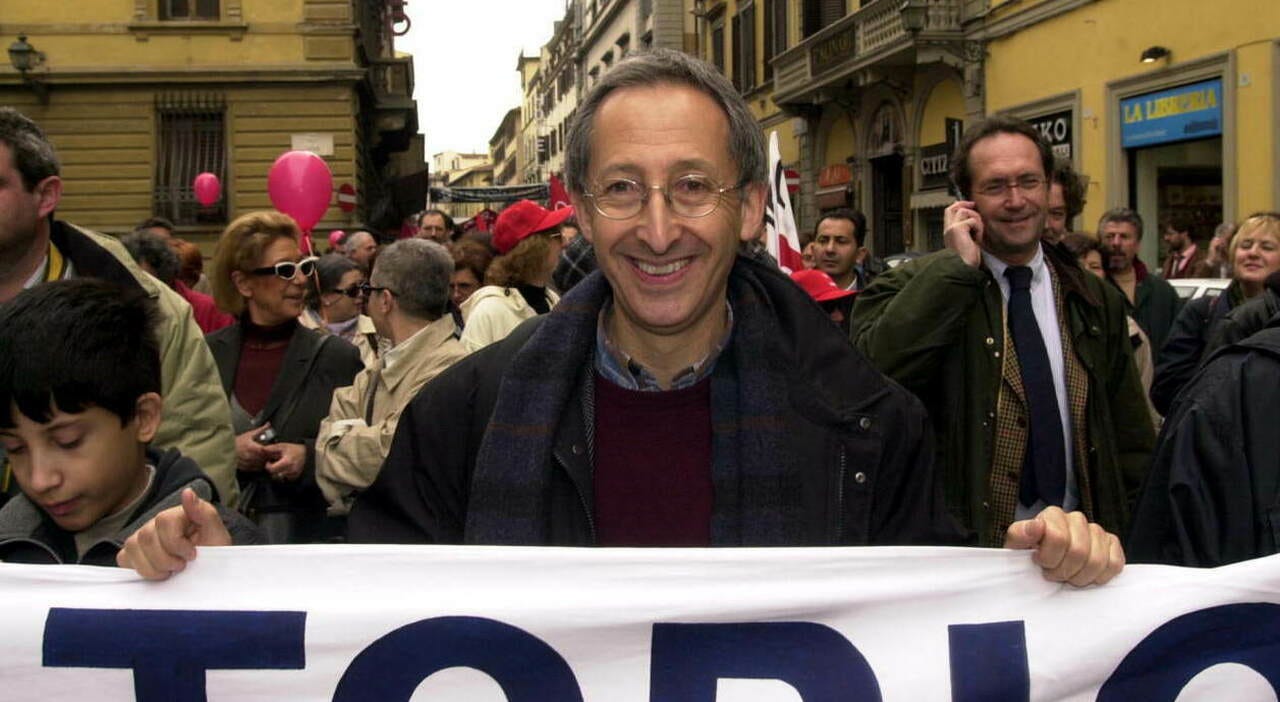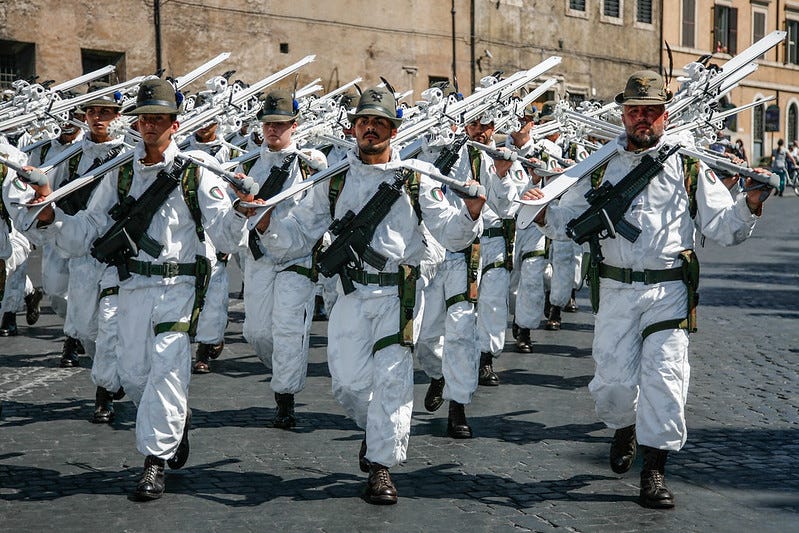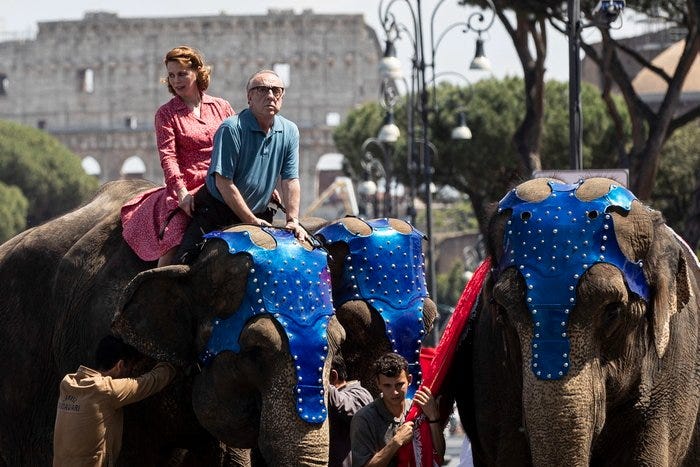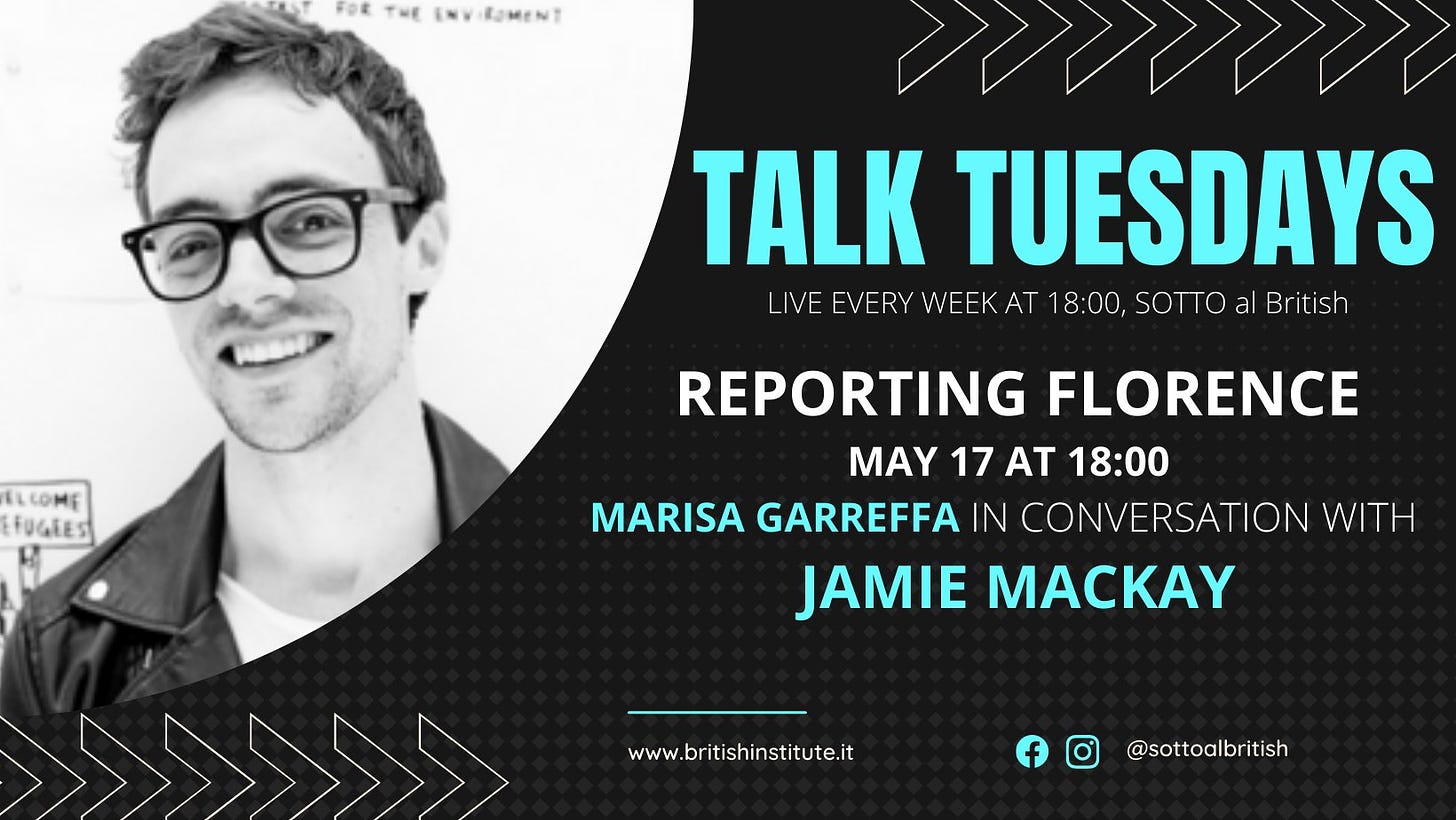First, some very sad news. Paul Ginsborg, the writer, historian and democratic campaigner died yesterday after a long illness. I was devastated to hear this. Paul’s work has been hugely influential for me, particularly his two-volume History of Contemporary Italy: Society and Politics, 1943-1988 which has been a go-to source on all manner of topics over the years. I had the privilege of getting to know Paul personally in 2017 while I was working on The Invention of Sicily — he got me into archives and libraries I would never otherwise have been able to access, and offered some stern but invaluable guidance on the final chapter. We talked often about politics over coffee at his house in Florence as well as a project he was furiously working on about the impact of 1968 on family life. I do hope it will be published some day. On a personal note: I was struck by his quiet, humble manner, his encyclopaedic knowledge and most of all his no-bullshit approach to Berlusconi’s legacy. The last chat we had together – published just before Covid – was about the sardines; a social movement he championed during his short-lived presidency of the civil society organisation Liberta’ e Giustizia.’ Despite feeling pretty worn-down at the time, I came away rejuvenated by his commitment to non-violence and enthusiastic insistence on the need for a new, reformed, social Europe. So thank you Paul, for everything. And, in the words of our mutual friend Sandra Bonsanti, “may a ‘bottom wind’ accompany you to the land of the righteous.”
This is a hard segway to make, but here’s some news I know Paul would want taken seriously: last weekend the Alpini, an Italian military regiment, met for their annual parade in Rimini to celebrate their apparently illustrious history. This was the first time since Covid that the proceedings had taken place in full, and the result was… disastrous. During two days of heavy drinking, and marching, it seems that many of the soldiers, or their supporters, embarked on a no holds barred spree of sexual assaults. The scale was enormous. Over the course of the weekend over 150 women sent messages to the the feminist organisation ‘Non una di meno; complaining that they were groped, cat-called and verbally abused. Locals are, rightly, demanding that action be taken. The media and political establishment, however, have been more muted in their response. The city’s mayor Jamil Sadegholvaad, for example, stated “you cannot generalise” about the Alpini; a message echoed by right wing leaders Georgia Meloni and Matteo Salvini, who added that the “glorious Alpine troops” should not be singled out as a symbol of “violence and vulgarity.” Stefano Zecchi, a well known philosopher, even went as far as to publish an op-ed in Il Giornale entitled “how political-correctness puts tradition on trial” which has been widely shared on social media. It’s hard to find a silver lining here I’m afraid, and these stories are a sad reminder, if it was ever needed, of how much still needs to be done to tackle gender-based violence in this country.
Italian film director Nanni Moretti got himself on the front pages – for better or worse - this week over the shoot for his upcoming film Il Sol dell'Avvenire. For one particular scene, Moretti organised several elephants to march along the streets of Rome, in the historic centre. The filming was not pre-announced and neither were any cordons put in place. The result? Locals and tourists alike were greeted to the bizarre scene of the vast animals trudging along past the colosseum and imperial forum accompanied by extras weilding communist PCI flags (in keeping with the film’s 70s setting). Many Romans seem to have enjoyed the spectacle, and city residents have been busy sharing dubious jokes that “Hannibal has finally arrived”, adding that “the animals might finally catch the wild boars” who have been rampaging the streets in recent weeks. Others have been quick to condemn the shoot. Gianluca Felicetti, for example, the environmental campaigner, complained that, in the 21st century, using real elephants was unacceptably cruel and that it would have been more responsible to use CGI. Likewise, animal rights campaigners are petitioning the town hall to try and prevent such apparent abuses in future. The mayor of Rome, Roberto Gualtieri, for what it’s worth, seems unconcerned. Indeed, he just posted a picture of himself on twitter shaking hands with Moretti while expressing his hopes that Rome can once again be a “capital of cinema.” Make of that what you will…
Arts and culture: poetic versus narrative cities
The Corriere della Sera journalist Beppe Severgnini has a new book out about Italian culture this week, the contents of which, based on the extracts, are more promising than the cover below might suggest. LitHub ran a chapter the other day called Trieste vs. Milan, Poetry vs. Plot; which – while admittedly a little out there – I really enjoyed. In this essay (or indeed chapter) Severinni offers a cultural-sociological take on some of Italy’s largest urban areas; dividing them into categories that might be likened to literary forms. Rome, Naples, Venice, and Florence, he writes, are “theatrical cities; well aware of their beauty”. Milan, Turin, Bari, and Palermo are narrative cities: “machines made to build plotlines.” Trieste, on the other hand, a place he has a particular affection for, is lumped together with Genoa and Cagliari as being “poetic” (which, in his schema seems to mean impressionistic, fragmented, and ‘pure’ in some way). Poetry, for Severini, “offers a lightning synthesis that reaches the brain by way of the heart,” and his argument here is, basically, that this is also true albeit in a vague, hard to define way, of Italy’s mysterious port cities. Read the full extract here for his much more eloquent exposition on the theme.
A quick calendar note for anyone that’s interested: I’ve been invited to do a little talk next week at SOTTO, the British Institute’s new arts space in Florence, to speak about journalism in Italy, my work, and indeed this newsletter! If you happen to be in town I’ll be speaking on Tuesday 17 May at 18.00ish. Entrance is free (and I can also vouch for the quality of the IGP vino bianco which is available for all who offer a donation…). If you’re reading from far away, meanwhile, the event will - I believe - be live-streamed so you can follow, if you’re so inclined, via Facebook. I’m not sure what I’ll be discussing yet; I’ve got a few notes scribbled about the mezzogiorno, an optimistic take to give on Florence’s future, and some rants on hand about the nuts and bolts of the writing trade, but I’d like to keep it as open as possible. If you’ve got any questions for me, then, shoot me an email and I’ll see if I can incorporate them into the discussion. Otherwise write them in the chat on the day, or join the Q&A, and we’ll see what happens. Hope to see you there, or online, next week! Here’s the link for more info.
Recipe: Katie Parla’s bread-stuffed peppers
My copy of Katie Parla’s Food of the Italian South is an absolute mess. Its corners are dogged and the pages are spotted all over with pollock-like splodges of crimson passata. It is, without doubt, one of the most flicked through books in my house. Yes, I love Katie Parla’s food, but most of all I love her approach to food. Unlike so many international cookbook writers who stick to the classics, I find Parla admirably dedicated to sharing authentic village dishes, cucina povera and so on. These stuffed peppers are the apotheosis of her approach: take some old bread, mix in some ‘flavour bombs’ - like anchovies, cheese, olives, oregano, capers, egg – shove it inside your vegetable and roast. Simple. Her particular ‘flavour bombs’, transcribed here by Tracey Zabar, are nominally used in Benevento, but I’ve definitely eaten similar fare on the road in Puglia, Campania, Calabria and Sicily. Personally, I like to serve these lukewarm – outside – and find them particularly delicious with a mix of other vegetable dishes. If you don’t own her book I highly recommend tracking down a copy before the summer. Alternatively you might want to subscribe to her podcast GOLA which makes for an excellent weekend listen.
About Me
My name is Jamie Mackay (@JacMackay) and I’m an author, editor and translator based in Florence. I’ve been writing about Italy for a decade for international media including The Guardian, The Economist, Frieze, and Art Review. I launched ‘The Week in Italy’ to share a more direct and regular overview of the debates and dilemmas, innovations and crises that sometimes pass under the radar of our overcrowded news feeds.
If you enjoyed this newsletter I hope you’ll consider becoming a supporter for EUR 5.00 per month (the price of a weekly catch-up over an espresso). Alternatively, if you’d like to send a one-off something, you can do so via PayPal using this link. No worries if you can’t chip-in or don’t feel like doing so, but please do consider forwarding this to a friend or two. It’s a big help!







